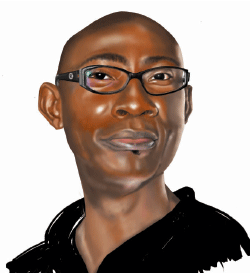By Oguwike Nwachuku
“We are not offering more financial support, we are proposing more political and policy dialogue, technical assistance, capacity building, training, transfer of technology. We are also proposing more advocacies for more private investments and other innovative sources of funding.”
The above excerpt came from the European Union Ambassador to Nigeria and the Economic Community of West African States (ECOWAS), Michel Arrion, when he addressed a Nigerian audience recently.
The venue was the Federal Capital Territory, Abuja, and the ceremony, a Dis+nguished Lecture organised by the IBB Golf Club, with the theme, “40 years of European Union in Nigeria: Lessons learned and the way forward.”
Arrion was the guest lecturer.
The ambassador was emphatic that EU was not
promising further assistance to Nigeria even though he was quick to recall that Nigeria remains EU’s key partner in view of the role it plays globally.
Arrion however said that the Union would scale up its efforts towards Nigeria’s institutional, political and economic development for a more prosperous future.
The most significant statement he made that day was that Nigeria could not be said to be poor, because the country has enough resources to meet its developmental needs.
Be that as it may, he expressed concern over the
economy of the country, and called for a more
equitable distribution of the country’s wealth to ensure growth and stability and unleash its enormous economic
potential.
Arrion nonetheless made some revelations that his audience marveled at.
For instance, he explained that the combined EU aide to Nigeria was about 10 per cent of the country’s annual budget.
His words: “The Official Development Assistance (ODA) flow in Nigeria is about $2.5 billion yearly, which corresponds roughly to about 10 per cent of the federal budget (N7.3 trillion or $24 billion). This has raised the question of should EU continue to give aide to Nigeria?
“We are not offering more financial support, we are proposing more political and policy dialogue, technical assistance, capacity building, training, transfer of technology.
“We are also proposing more advocacies for more private investments and other innovative sources of funding.”
EU’s advice: Nigeria must improve in its tax collection to finance the development of the country. Nigeria must find alternative funding to ODA including improved tax collection which must be improved at least five times more and also spend better.
Quoting Price WaterCooper (PwC 2016), the envoy said: “Nigeria collects about N5.5 trillion or $18 billion per year.
“About 10 million people (10 per cent of adult population) are registered for personal income tax (half of them in Lagos).
“The rate of VAT compliance by registered entities is about 12 per cent. The rate is lower for corporate income tax nine per cent.”
He also said Nigeria must attract more foreign investment, five times more, to reach the level of Angola or Vietnam for instance and put in place more and better Public Private Partnerships.
Arrion reminded his audience that the evolution of vibrant relationship of equal partners between Nigeria and the EU was founded on shared values and aspirations and mutual trust.
“The EU in its 40 years of engagement with Nigeria has identified development priorities, funded projects to stimulate the Nigeria’s economy, reduce hunger and disease,” he said, adding, “the union had also helped to enhance institutional capacities, strengthen governance and fight insecurity in Nigeria.”
Watching the television coverage of the event and heard Arrion make that statement, I was not only worried, but I told myself that gradually Nigeria and Nigerians would begin to realise that the success or otherwise of this country does not lie in the hands of anyone else. It lies in the hands of the citizens and their leaders.
Before I return to Arrion’s lecture shortly, let me refresh our memory on the comment credited to the former British Prime Minister, David Cameron, when he described Nigeria as “fantastically corrupt” in 2016.
While briefing the Queen of England, Elizabeth II, after a cabinet meeting ahead of the Anti-Corruption Summit on Thursday, May 12, 2016 – where President Muhammadu Buhari was billed to give a keynote address – Cameron tagged Nigeria alongside Afghanistan as “fantastically corrupt” nations.
The venue was Buckingham Palace while the occasion was the Queen’s 90th birthday which had in attendance other public figures like the Archbishop of Canterbury, Justin Welby, and House of Commons Speaker, John Bercow.
Cameron had told the Queen: “We’ve got some leaders of some fantastically corrupt countries coming to Britain … Nigeria and Afghanistan, possibly the two most corrupt countries in the world.”
It took a Justin Welby to remind both the Queen and Cameron that visiting Buhari is not corrupt and that his regime is pursuing an anti-corruption agenda that should interest Britain.
Cameron’s statement had attracted a lot of flaks from Nigerians, including from yours sincerely.
The Guardian (UK) did not have kind words either for Cameron in its editorial piece then.
It had written: “The Prime Minister is not personally corrupt – but he is certainly guilty of epic hypocrisy. So, for that matter, are Britain and the West.
“They have spent decades ordering poor countries and failed states to sort out their problems with dodgy money, even while taking much of that dodgy money and ploughing it through their banks, their ritzy stores, their estate agents, and their offshore tax havens – with barely any questions asked or eyebrows raised.”
When Buhari was asked if he anticipated an apology over Cameron’s comment, he put it succinctly that he was not after apology but the money Britain has helped some corrupt Nigerians stash away, a comment that speaks volumes.
“I am not going to be demanding any apology from anybody. What I will be demanding is the return of assets. I have already mentioned how Britain led and how disgraceful one of Nigeria’s executive was.
“He had to dress like a woman to leave Britain and left behind his bank account and fixed assets which Britain is not prepared to hand over to us. That is what I am asking for. What will I do with apology? I need something tangible,” Buhari had said.
There is no need repeating the negative impact of that snide comment from Cameron on Nigeria. Though he muttered a few apologetic statements, lessons were drawn from what transpired.
One of the biggest lessons was that our leaders demonise their citizens before their European counterparts or audiences with the sing song of being corrupt, a comment the west want to hear about us.
Writing on Cameron’s fantastic gaffe on this column on May 15, 2016 I said: “African leaders are yet to find their feet on governance. They do not understand the concept of power hence they run to Europe and America to seek solution to matters that demand domestic intervention.
“Our leaders go outside their shores to denigrate their fellow countrymen without knowing how much damage they are doing to themselves. Corruption is one of their sing songs any time they are in Europe, America or Asia in search of aid. They magnify crimes committed at home to whip up sentiment so as to hear the West tell them sorry.
“Though Buhari appears serious about fighting corruption, he contributes to our diminishing relevance in the international community the way he opens his mouth so wide on Nigerian matters.
“That he does not see any credible Nigerian apart from himself, and does not mind to tell any European or American audience so is unfortunate.
“Leadership demands that our president also presents the good side of his countrymen and women and not to always condemn all Nigerians in the name of fighting corruption.
“Whenever Buhari speaks on the ills of Nigeria outside its shores he may talk about the bad citizens but he must not assume that all the 150 million people he leads are corrupt.
“During his electioneering, he made corruption one of his key priorities saying, “if Nigeria doesn’t kill corruption, corruption will kill Nigeria.”
With the arrest of many high-ranking members of the political elite on corruption charges, mainly members of the Peoples Democratic Party (PDP), and their collaborators in the private sector, how else does Buhari want to convince Downing Street that corruption is not a “way of life” in Nigeria as he had earlier made it believe?
“He cannot continue to speak out on Nigerian criminals without reference to the honest ones who contribute positively in their different areas of calling both at home and in the Diaspora.
“The impression Cameron and some other European, American and Asian leaders have of us is based, first and foremost, on what Buhari and other African leaders tell them.
“And that is the easiest way of further subjugating us to their authority as those they colonised. They grab the opportunity to assert the false air of superiority we thrust on them by our failure to get our act together.
“That is the reason for Cameron’s fantastic corruption gaffe.”
I find a nexus between Cameron’s 2016 fantastic corruption snide against Nigeria and Arrion’s 2017 comment that the EU is no longer going to fund projects in the country merely because he finds “Nigeria to be rich.”
Without mincing words Arrion was indirectly telling us that the fund from the EU were not well managed or were embezzled, meaning corruption may have been responsible for the non-equitable distribution of the resources meant to impact live in the calculation of the EU.
He may be right. But what happens to the EU template or mechanism for monitoring funds released to countries for specific projects?
Is it not an indictment of the EU officials themselves if they are not able to ensure that funds made available for particular causes are put to their use?
Or is it not high time the EU changed strategy in the manner they make their funding? What is wrong in exposing those who have mismanaged resources meant for the EU projects in Nigeria rather than hiding under “Nigeria is not poor” to deny the poor citizens of the country the help that would have come to them?
If EU’s execution of projects in other countries they have partnership with is working, why would they not make it work in Nigeria instead of pointing fingers without exposing the culprits?
Arrion may as well not be telling us the whole truth about what he thinks of Nigeria and Nigerians, but let him be reminded that if he takes a critical look at the quality of life of the common man in the country he will see for himself whether his decision fits or not.
The Nigerian poor are in their millions. They do not feel the impact of the wealth you are talking about. And the last thing you can do is to deny them the opportunity of having a feel of your impact here, no matter how small, if you get your acts right.











